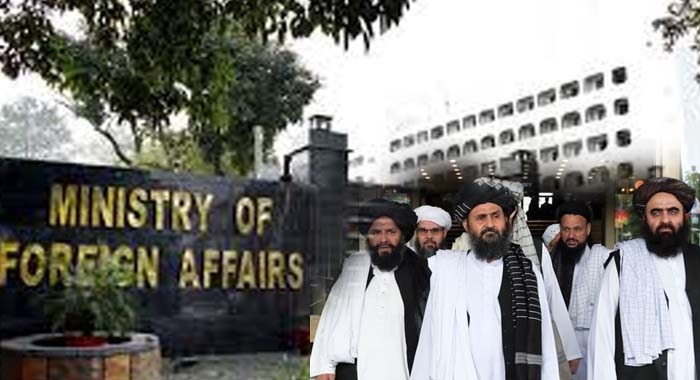The Government of Pakistan has reiterated that the Afghan Taliban administration is endangering regional peace by providing sanctuary to terrorist organizations, particularly Tehreek-e-Taliban Pakistan (TTP) and the Baloch Liberation Army (BLA). The Foreign Office spokesperson emphasized that any individual or group supporting these elements cannot be considered a friend of Pakistan.
In parallel, regional diplomatic efforts are gaining traction. Iran has offered to mediate between Pakistan and the Afghan Taliban government, while Turkey’s President Recep Tayyip Erdoğan has announced the dispatch of a high-level delegation to Pakistan to promote lasting peace with Afghanistan. The delegation aims to facilitate dialogue, review the current ceasefire situation, and reduce tensions across South Asia.
Pakistan highlighted that its historical, cultural, and religious ties with Afghanistan have always positioned the two countries at the heart of regional politics. However, in recent years, cross-border terrorist attacks have strained relations, particularly after the Taliban’s return to power. The repeated use of Afghan territory as a base for terrorist activities against Pakistan has tested Islamabad’s patience and underscored the urgent need for accountability.
“The sovereignty and security of Pakistan must not be compromised by activities originating from Afghan soil,” the spokesperson stated. “This principle is central to bilateral relations, international law, and the United Nations Charter.” By allowing terrorist groups to operate freely, the Taliban government is not only jeopardizing Pakistan’s security but also threatening peace throughout the region.
Pakistan has made extraordinary sacrifices in the fight against terrorism, from the victims of the Army Public School tragedy to engineers and workers on major development projects like CPEC. Repeated attacks emanating from across the border represent both a security threat and a violation of diplomatic norms. Despite consistent hopes that the Afghan government would act against these elements, no substantive measures have been observed so far.
Islamabad continues to prioritize dialogue and diplomacy over confrontation. The ongoing mediation efforts by Turkey and Qatar reflect Pakistan’s commitment to peaceful resolution, reserving force as a last resort. However, Taliban representatives have reportedly hindered progress in successive negotiation rounds through obstruction and provocative statements, creating an impression of either diminished control over terrorist groups or the exploitation of these elements for political gain.
Iran’s mediation offer is seen as a positive development. Recent discussions between Pakistan’s Deputy Prime Minister and Foreign Minister Ishaq Dar and Iranian Foreign Minister Seyed Abbas Araghchi underscore the regional consensus that renewed conflict is unsustainable. Iran’s initiative aims to resolve rising border disputes and promote collective regional efforts for peace.
Similarly, Turkey’s planned delegation is expected to engage Pakistani authorities to assess the ceasefire and support measures for enduring peace with Afghanistan. The move enhances Turkey’s diplomatic credibility and reflects a serious effort to reduce regional tension.
Pakistan has consistently supported the Afghan people, offering refuge to millions of refugees and providing humanitarian assistance through decades of conflict, including the Soviet occupation and U.S. withdrawal. Despite this support, attacks originating from Afghan territory represent a grave breach of trust.
The government stressed that Pakistan is not Afghanistan’s adversary but a neighbor committed to regional stability. A peaceful Afghanistan benefits its own citizens most, and Pakistan remains ready to bolster diplomatic initiatives while safeguarding its sovereignty and national security.
Pakistan is calling for a two-pronged approach: the creation of a regional diplomatic bloc including Iran, Turkey, and Qatar to pressure the Taliban to act decisively against terrorist groups, and the use of international forums such as the United Nations and OIC to highlight the threat posed by cross-border terrorism. Should the Taliban continue to provide safe havens for militants, Pakistan reserves the right to take all necessary measures to protect its citizens.
However, Pakistan’s overarching priority remains the establishment of peace, stability, and opportunities for development in the region. Sustainable security and prosperity require Taliban alignment between words and deeds, decisive action against terrorist elements, and renewed cooperation with Pakistan.
“Peace is not the interest of one nation alone but of all,” the spokesperson concluded. “Temporary force may silence violence, but enduring peace can only be achieved through mutual respect, trust, and genuine diplomacy. Pakistan has fulfilled its responsibility; it is now time for the Taliban government to demonstrate its capacity as a responsible state capable of providing safety and stability for its citizens and neighbors alike.”





